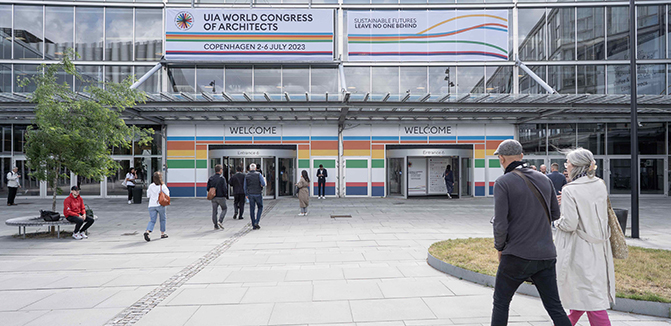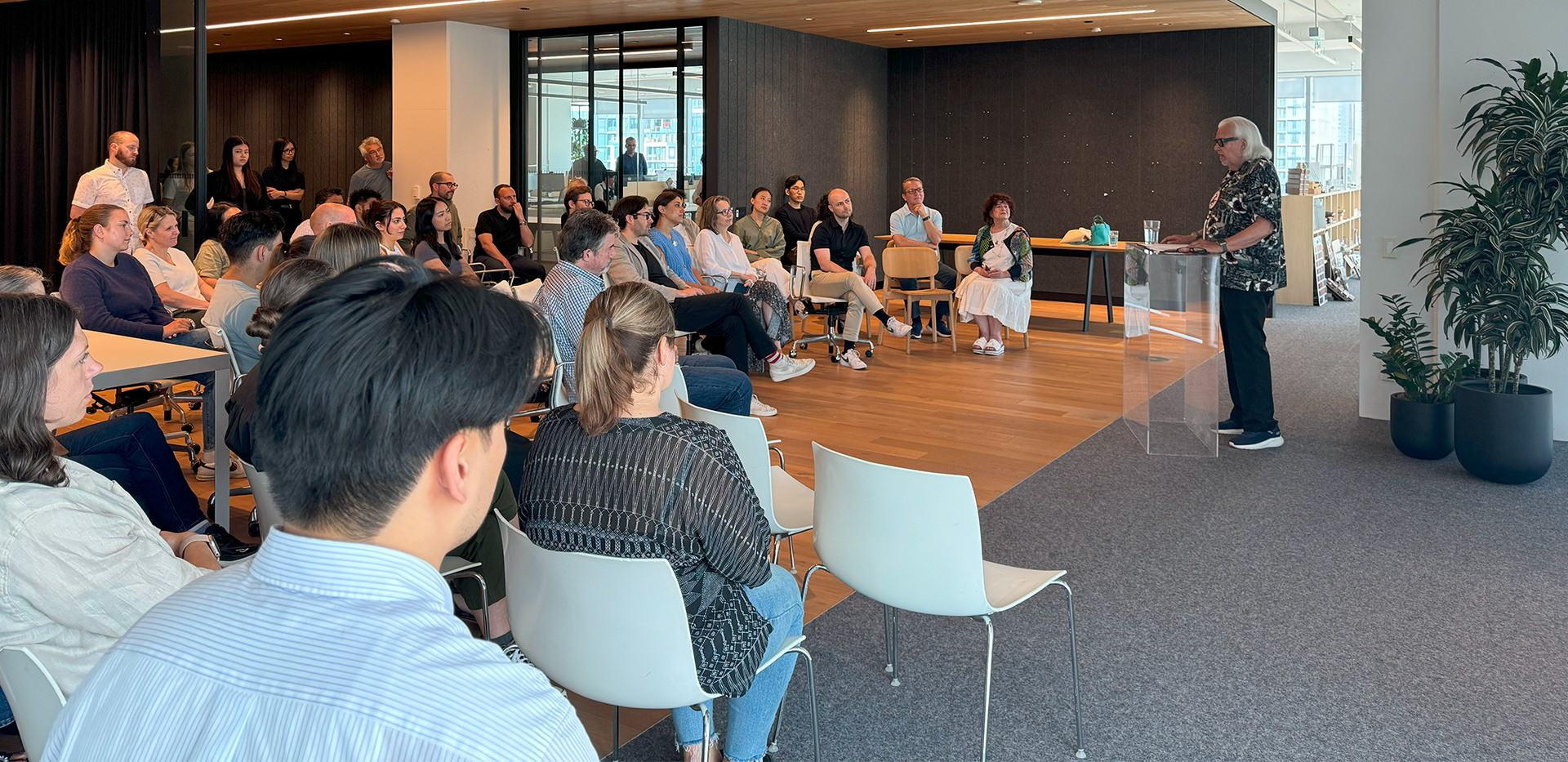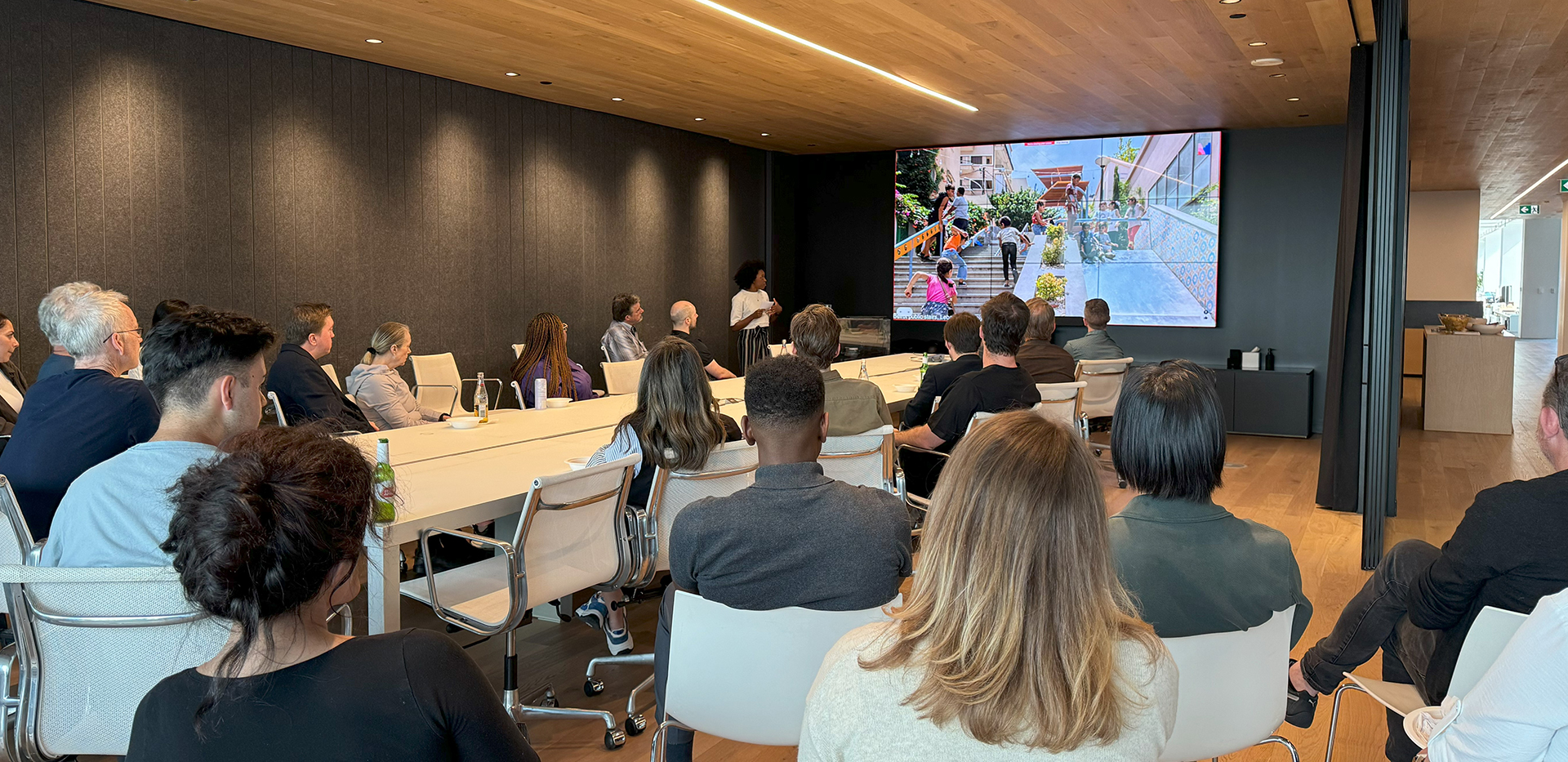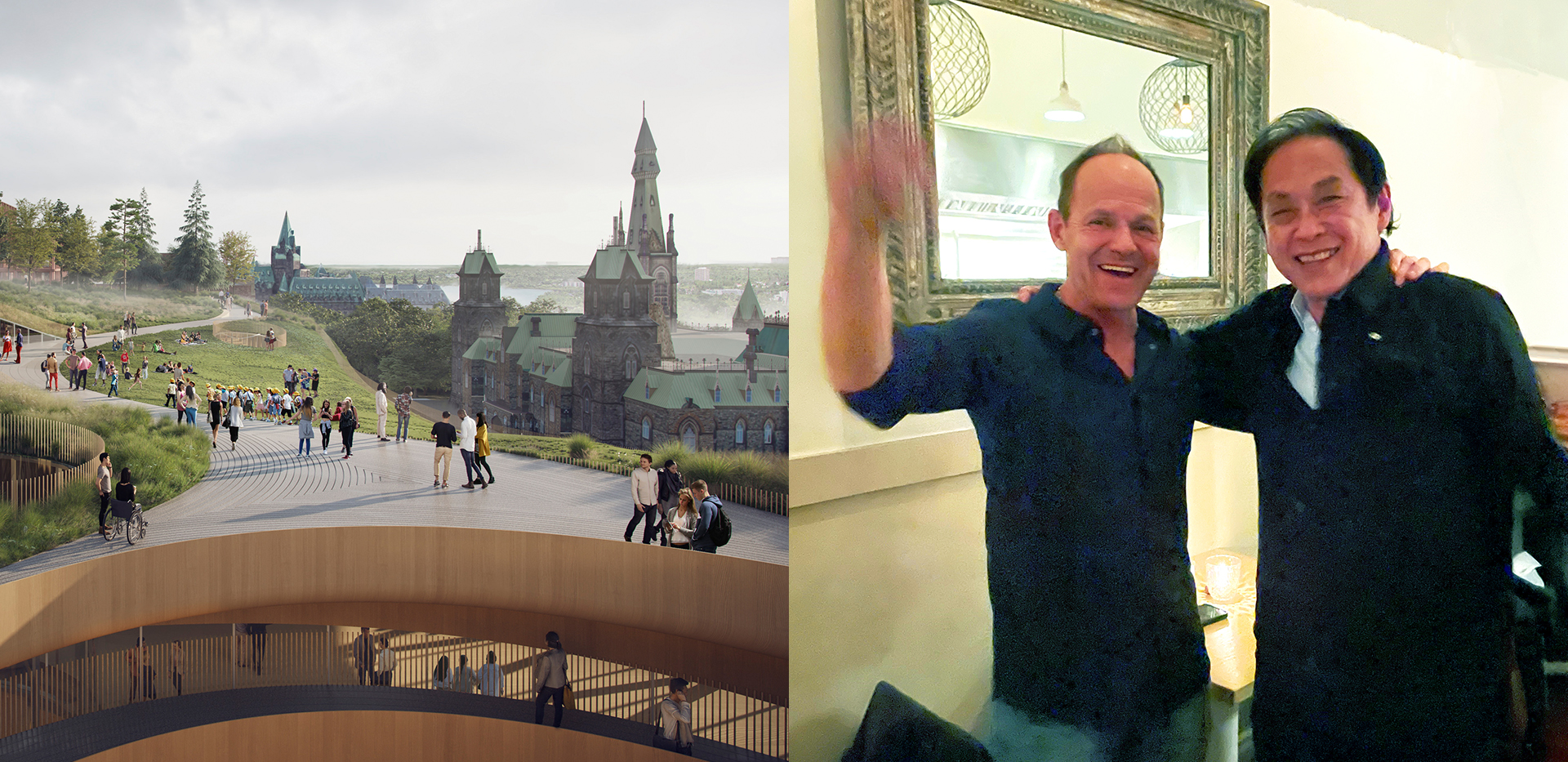Dispatch from the 2023 UIA World Congress of Architects

Article content
August 9, 2023
How do we design without leaving people behind? How can future designs champion sustainability, tackle housing affordability, and prioritize diversity and inclusion?
At this year’s UIA World Congress of Architects in Copenhagen, more than 400 speakers delivered keynote speeches, seminars, and workshops that sought to address these questions.
The UIA World Congress of Architects brings together architects, designers and industry professionals from around the world to discuss current and emerging challenges in the field of architecture, urban planning, and design, and to explore novel solutions.
For its 28th year, the theme was “Sustainable Futures – Leave No One Behind!” — a topic pertinent to professionals in the global architecture community as they work to devise creative solutions to real-world problems through design.
“It was great to see a range of topics discussed,” says partner Bruno Weber, who attended the Congress. “Designing for people with disabilities, museum design that incorporates an Indigenous worldview, eco-friendly building materials like bamboo, an emphasis on sustainability and climate change and an emphasis on building less.”
Among the conversations that stood out to Weber for their focus on resilient community building were “Rethinking Resources – How to Do More With Less” (a keynote dialogue by Diébédo Francis Kéré, the 2022 Laureate of the Pritzker Architecture Prize, in conversation with Minik Rosing, a professor of geology at the University of Copenhagen) and “Cities for People – 50 Years Later” (a conversation between architects Jan Gehl, Rob Adams, and Camilla van Deurs).
Whether it’s the schools, clinics, and civic spaces that Kéré has designed in his hometown of Burkina Faso or Gehl whose role in redesigning Copenhagen helped transform it from a car-centric city into a pedestrian-friendly city, Weber saw in both presentations, a people-centred approach to architecture and design that makes communities more liveable and inclusive.
“Architecture to me is caring,” Kéré said during his keynote dialogue, a remark that resonated with Weber.
Related News
Celebrating Indigenous History Month 2024 at KPMB
July 12, 2024Celebrating Pride Month 2024 at KPMB
July 12, 2024
)
)
)